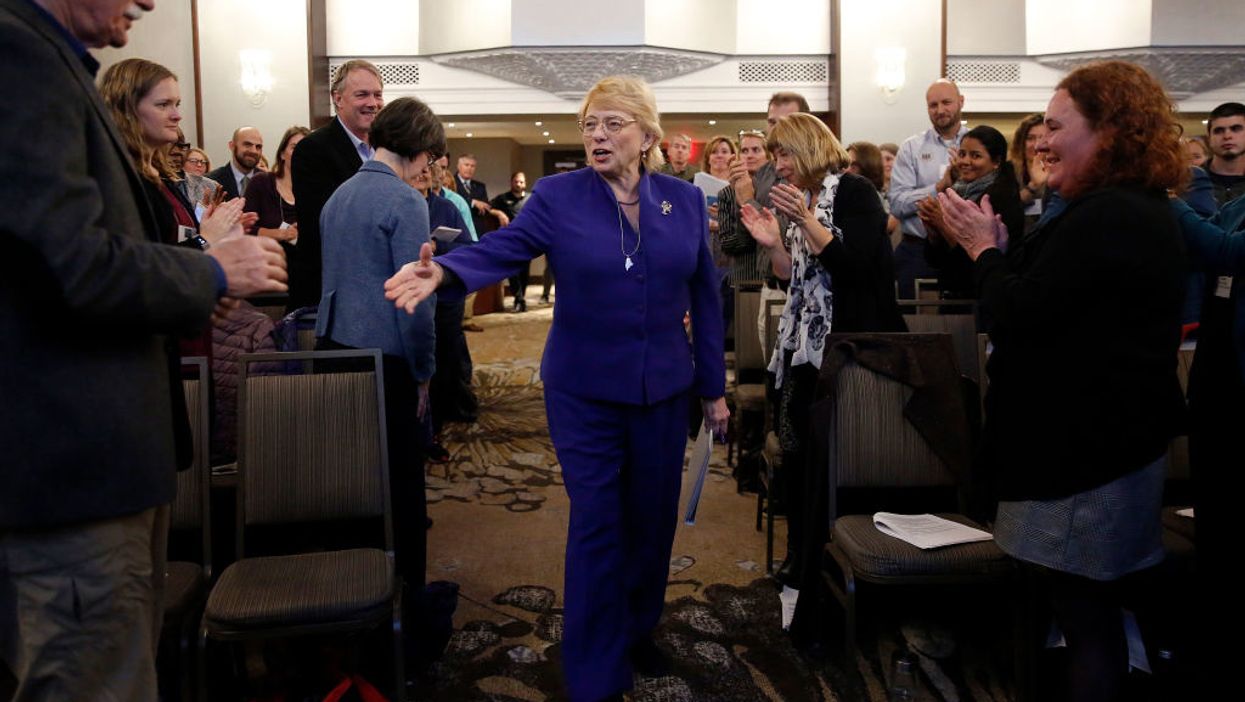It turns out the battle over Maine's voting system isn't done yet.
When the Republican Party failed to turn in enough petition signatures last week to block the use of ranked-choice voting in Maine's presidential election this year, it seemed that fight was finished. But Maine, the one state that has approved RCV, is facing a new challenge.
A federal lawsuit filed this week seeks to block the use of ranked-choice voting in November, which would be another high-profile test of a system that advocates are trying to expand throughout the country. And it would play a role in the outcome of one of the most-watched Senate races in the country, featuring incumbent Republican Susan Collins.
The lawsuit — filed on behalf of four Maine voters against Gov. Janet Mills, Attorney General Aaron Frey and Secretary of State Matthew Dunlap — is the just the latest in a series of challenges to RCV in Maine, which was initially approved by voters in 2016 for use in state and congressional elections. The system allows people to vote for more than one candidate and rank their choices.
Proponents argue that it results in a truer reflection of voter support, achieves majority support before naming a winner, allows for an instant runoff that saves the time and expense of putting on another election, and makes for less harsh political campaigns.
Opponents say the system is confusing, and in this lawsuit they rely heavily on the argument that the value of some people's votes is diminished if they don't choose multiple candidates.
Maine voters again approved the idea in 2018 after the Legislature had rejected it and legislation later expanded it for use in the presidential race; an attempt to place another voter referendum on the ballot this fall — which would have halted its use in the 2020 election — failed because not enough valid signatures were gathered.
Ranked-choice voting resulted in Democrat Jared Golden ousting Republican Rep. Bruce Poliquin in 2018. Poliquin initially challenged the results in court but ended up withdrawing his lawsuit.
The latest suit argues that allowing ranked-choice voting in this fall would deny many voters full participation in the election. The argument is based largely on a study of the 2018 elections by Nolan McCarty, a Princeton University professor.
The study claims many voters were hurt because they did not understand how ranked-choice voting works and did not choose and rank enough candidates.
So, the argument goes, after the first round of ballot counting if no candidate has a majority, then the candidate receiving the lowest number of votes is eliminated and the second choice of those voters is applied in the second round of counting. (That's how Golden won despite trailing in the initial count.)
But if the voter did not make a second or subsequent selection, then their ballot is "exhausted" and, in effect, does not count, the suit argues.
It points out that the judge in the 2018 legal challenge ruled there was no empirical evidence to show that the system diminished the votes of some people.
It also argues that an election conducted using a larger number of absentee ballots, as is expected this fall because of the coronavirus pandemic, could exacerbate the problem. That's because people won't have a chance to get help with their ballot if they are voting at home.




















Marco Rubio is the only adult left in the room